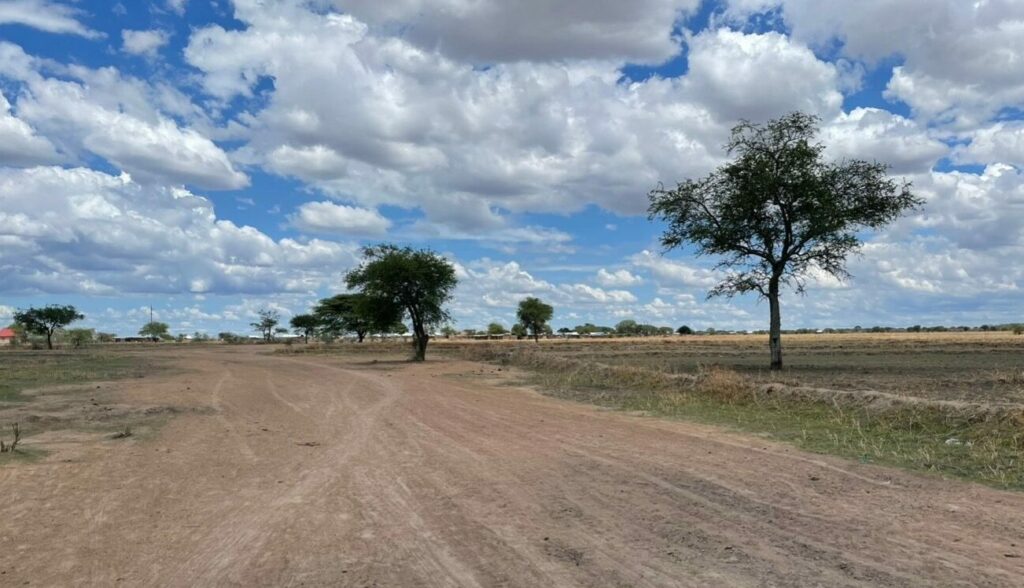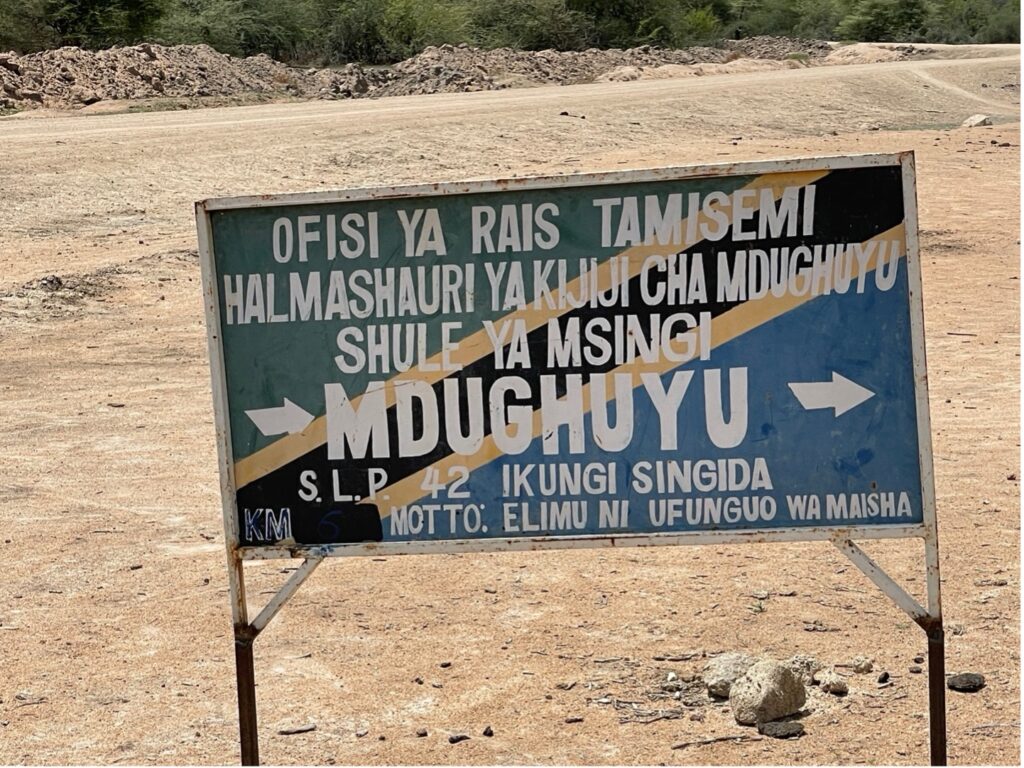
About the program
The program started in autumn 2022 and it is a second integrated program we have taken up together with our partner Tanzania Development Trust (TDT, with whom we have successfully collaborated for 7 years on a wide range of projects in Marumba village.
To join us in supporting this program and to follow its realisation click the button below!
Why do we need to support a project in this area?
Mdughuyu just like Marumba is situated in a very remote area and difficult to reach. Even basic needs like water, electricity or road connections are missing. The next closest town to Singida is situated around 93 km away to the east but one hours to drive to Mdughuyu because of the dirt road which ends several km before arriving at the village. Singida is a city in central Tanzania, and it is very common to find many remote villages around that area.

What is planned for the program years?
Due to a shortage of classrooms relative to the number of students, two additional classrooms are needed at the primary school. In collaboration with TDT, it was agreed to focus support on constructing these two new classrooms, while local authorities would contribute by providing the necessary furniture.
Mdughuyu village is home to approximately 3,500 residents, with 390 children currently enrolled in the primary school. Six teachers are responsible for instruction, but their living conditions are challenging. Most reside in modest homes among villagers, and three teachers live more than 3 kilometers from the school. Only the headteacher has government-provided housing near the school. This situation has led to frequent resignations and staff turnover.
To address this, a new housing project near the school will accommodate three teachers, while two others will continue to live with villagers—albeit closer to the school.
Due to a shortage of classrooms relative to the number of students, two additional classrooms are needed at the primary school. In collaboration with TDT, it was agreed to focus support on constructing these two new classrooms, while local authorities would contribute by providing the necessary furniture.
Mdughuyu village is home to approximately 3,500 residents, with 390 children currently enrolled in the primary school. Six teachers are responsible for instruction, but their living conditions are challenging. Most reside in modest homes among villagers, and three teachers live more than 3 kilometers from the school. Only the headteacher has government-provided housing near the school. This situation has led to frequent resignations and staff turnover.
To address this, a new housing project near the school will accommodate three teachers, while two others will continue to live with villagers—albeit closer to the school.
In coordination with the local government, the planned dispensary was revised from seven rooms to five. However, foundations for the remaining two rooms have been laid, allowing for future expansion. The government has committed to supplying medical equipment, drugs, and staff to ensure the dispensary’s operation.
Sanitation facilities have also improved, with toilets installed for both students and teachers. Additionally, an ecological school garden has been established to grow fruits and vegetables, enhancing the nutritional quality of meals served by the school kitchen. The garden is securely fenced and supported by a dedicated water tank.
- All
- Gallery Item




